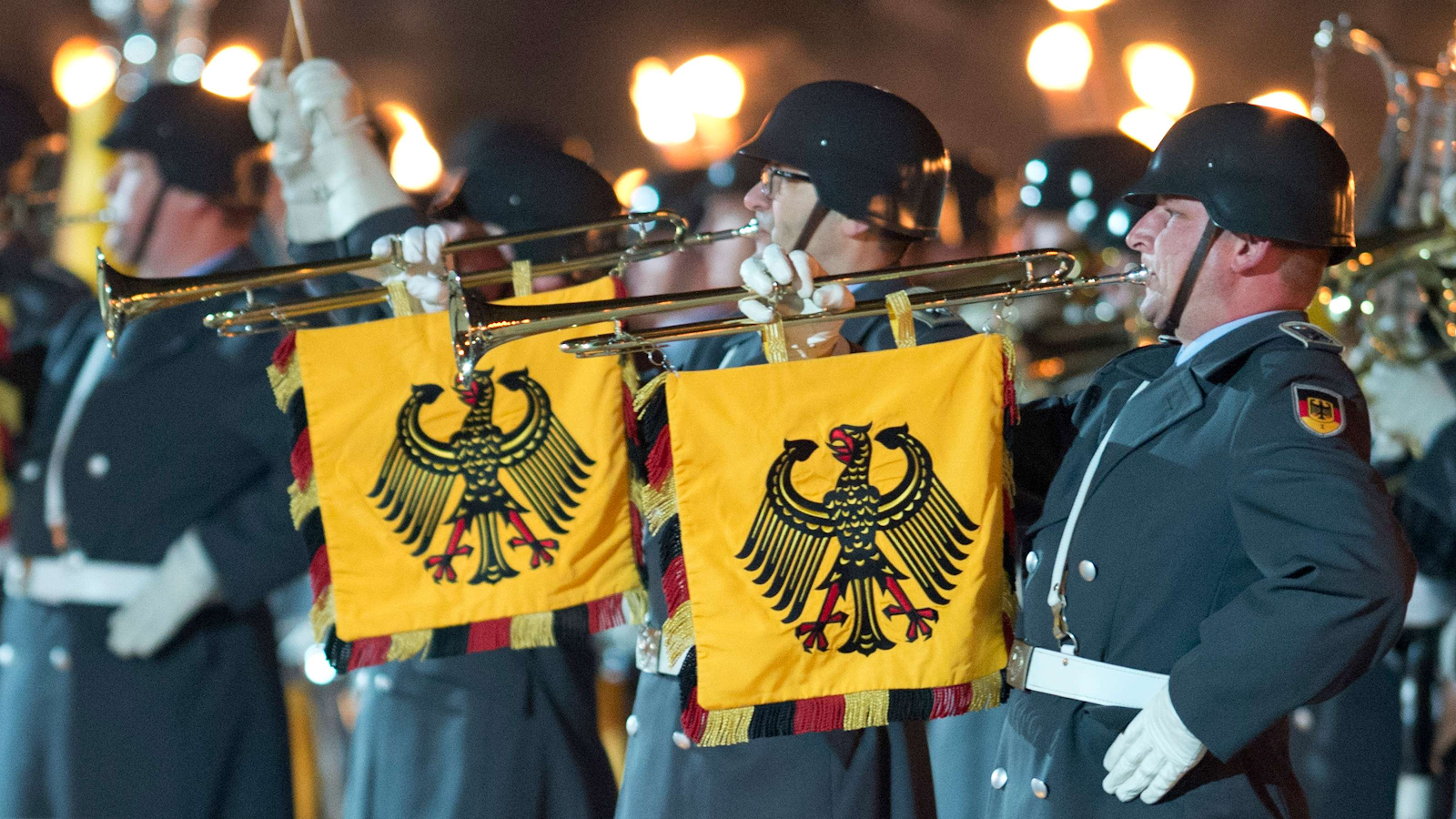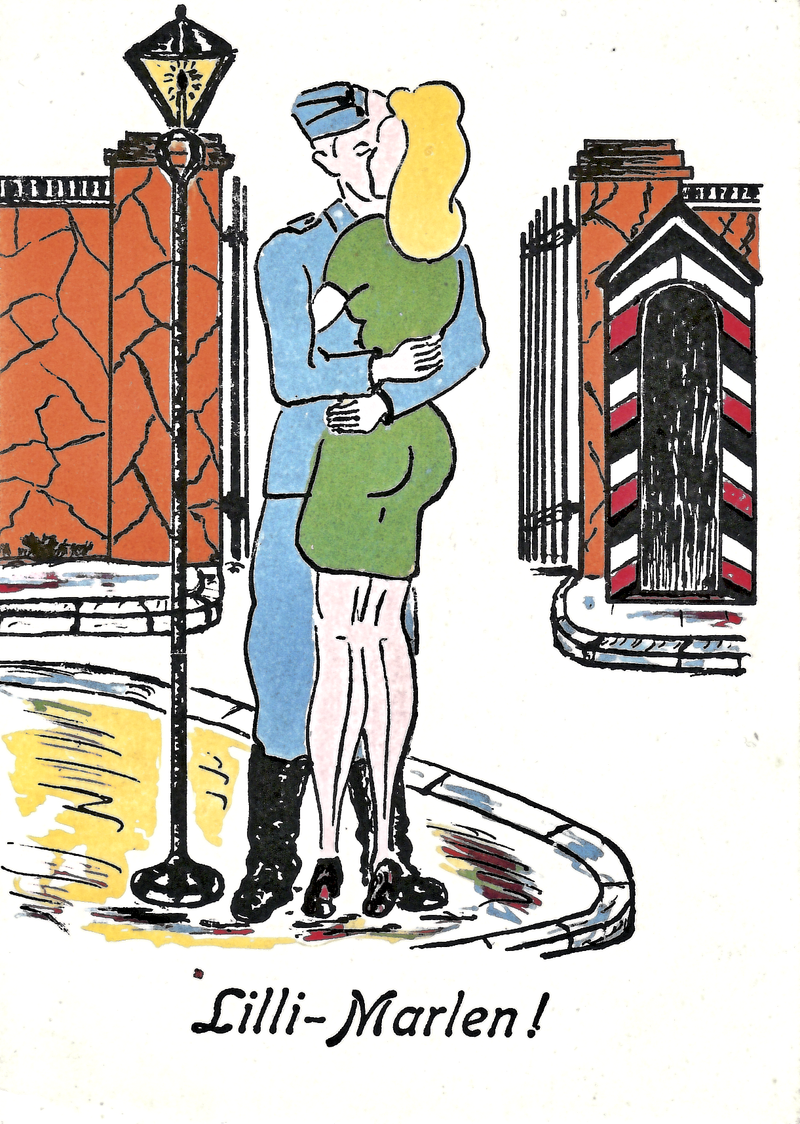Propaganda
postcard of the German Wehrmacht's postal service in Paris, 1942, with Lili Marleen motif
There were few things that Axis and Allied
combatants agreed on during World War II. From their political ideologies to their
human rights records to their respective interpretations of “total war,” German
fighting men felt little kinship with their American, British or French counterparts,
besides perhaps the brotherhood of soldiery.
Remarkably, there was one common thread,
one poignant and emotional touchpoint, where the warring sides intersected, nurtured by the universality of music: the song “Lili Marleen.” Popular with
Axis and Allied troops alike, the original German lyrics, and their
translations into English, French and Italian, struck a chord with military men
of various nationalities:
Vor der Kaserne
Vor dem großen Tor
Stand eine Laterne
Und steht sie noch davor
So woll'n wir uns da wieder seh'n
Bei der Laterne wollen wir steh'n
Wie einst Lili Marleen.
Unsere beide Schatten
Sah'n wie einer aus
Daß wir so lieb uns hatten
Das sah man gleich daraus
Und alle Leute soll'n es seh'n
Wenn wir bei der Laterne steh'n
Wie einst Lili Marleen.
Underneath the lantern,
By the barrack gate
Darling I remember
The way you used to wait
T'was there that you whispered tenderly,
That you loved me,
You'd always be,
My Lilli of the Lamplight,
My own Lilli Marlene
Time would come for roll call,
Time for us to part,
Darling I'd caress you
And press you to my heart,
And there 'neath that far-off lantern light,
I'd hold you tight ,
We'd kiss good night,
My Lilli of the Lamplight,
My own Lilli Marlene
The 1915 poem by Hans Leip, an Imperial German Army soldier, was later set to music by Norbert Schultze, and first recorded by Lale Andersen in 1939. The song was translated into English by Norman Baillie-Stewart, a former British army officer and Nazi sympathizer, who assisted the German propaganda machine. Other English-language versions were published, and Andersen recorded the Baillie-Stewart translation in 1942. Entertaining both Axis and Allied troops, Andersen's English recording earned a gold disc with over one million sales. Besides Andersen, the song was recorded by other artists, and in the 1961 film Judgment at Nuremberg, Marlene Dietrich's character translates the song for Spencer Tracy's, telling him that the German lyrics are "much sadder" than the English.
Troops on both sides of the war listened to recordings broadcast by German- and English-language radio stations. Neither German High Command nor the Allied authorities officially sanctioned the song, and top brass in each camp had tried to ban it at one time or another. On the German side, Joseph Goebbels reportedly hated the song, while Erwin Rommel asked that it be played more often. "Lili Marleen" became a sensation, and combatants from warring nations embraced the song as their own.
The forlorn soldier or sailor, far from home, bereft of compassion and tenderness, yearns for many of the same comforts as does his counterpart across no man's land. Just like air and water, food and shelter, all people crave love and affection, regardless of nationality or creed. It is what makes us human, what separates us from automatons. While music purportedly can "soothe the savage breast," it also reminds us of what we have in common, and perhaps has the power to calm the raging hearts of warriors, and inspire our shared humanity.





